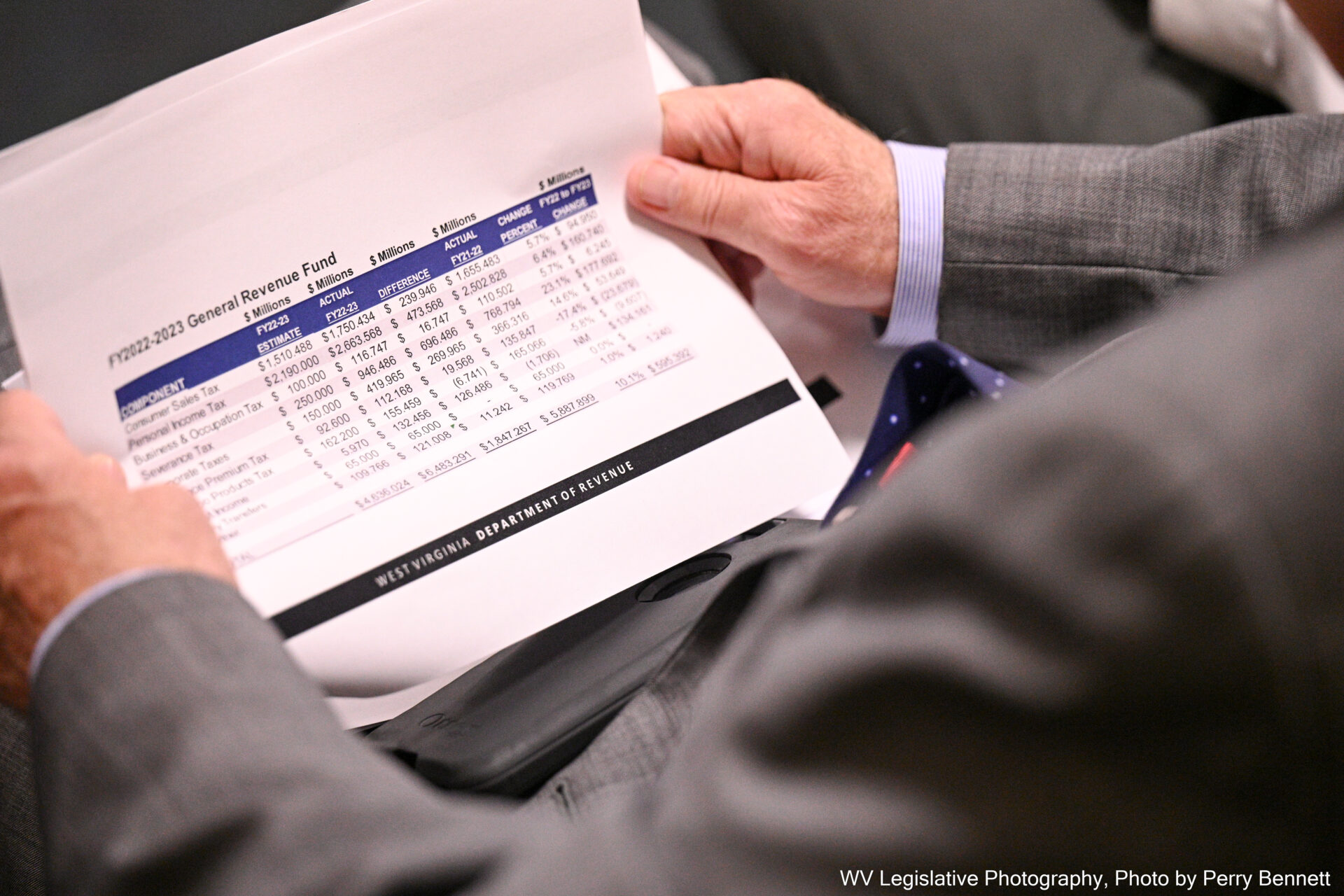Breaking down West Virginia’s $1.8 billion surplus from the past fiscal year, while projecting a 2024 budget, Department of Revenue Deputy Secretary Mark Muchow told members of the legislative Joint Committee on Finance that while funding increases were consistent across the board, decreases were expected in personal income tax revenues – and in severance taxes relating to a fluctuating coal, gas and oil market.
“We also expected a big reduction in severance tax due to lower energy prices,” Muchow said. “Here we have a reduction of $633 million, and the official estimate is 66.9 percent.”
Muchow said recent monthly severance tax collections are currently exceeding budget estimates and will be closely monitored going forward. He said energy production was not the problem.
“Coal production is up 5.9 percent,” Muchow said. “We’re on target for 90 million tons of coal. And natural gas production is up 9.9 percent. It’s all about the price. The math is pretty easy, our tax is 5 percent of the price. So we will rise or fall on price. And we had a very warm winter last winter. Who knows what’s coming in the future?”
Gov. Jim Justice has said new workers and their families coming to West Virginia will offset the 21.25 percent personal income tax cut implemented this year.
Revenue Secretary Dave Hardy noted that these revenue streams tend to slow down in July and August.
“As of the end of August our consumer sales tax revenue was up 2.5 percent from a year ago,” Hardy said. “Our personal income tax revenue as of the end of August, was down 16.2 percent. Well, we did a 21.25 percent income tax reduction. So, the fact that our revenue is only down 16.2 percent in the personal income tax category means that we still have real growth in income in our state.”
Hardy said the personal income tax cut will put a projected $696 million back into citizens pockets through the PIT reduction.
